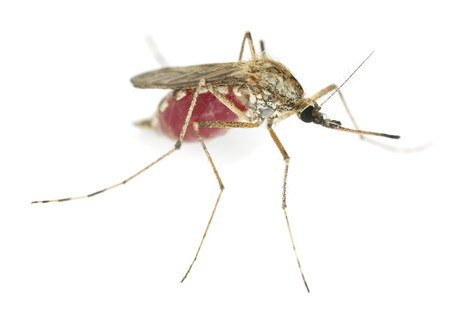Mosquitoes genetically engineered to resist dengue

After decades of research and countless control attempts, US scientists have successfully engineered mosquitoes that have an increased resistance to infection by dengue fever.
When a mosquito bites someone infected with dengue virus (DENV), the virus needs to complete its life cycle in the mosquito’s gut, eventually infecting its salivary glands, before it can infect another person. Previous studies have shown that mosquitoes rely on a molecular pathway dubbed JAK/STAT to try to fight DENV infection and stop this cycle. Proteins known as Dome and Hop are involved in turning on the JAK/STAT when the mosquito is infected with DENV.
Scientists at Johns Hopkins University, led by George Dimopoulos, genetically engineered Aedes aegypti mosquitoes to turn on expression of either Dome or Hop in the fat body tissue, earlier in infection — immediately after ingesting blood — and make more of the proteins. The results were published in the PLOS Neglected Tropical Diseases.
Mosquitoes with engineered versions of Dome or Hop that were then infected with DENV had 78.18% (Dome) and 83.63% (Hop) fewer copies of the virus in their guts, as well as significantly less virus in their salivary glands. Mosquitoes with the altered genes had normal life spans, but produced fewer eggs than normal mosquitoes. When the researchers repeated the experiments with Zika virus and chikungunya virus, no impact was seen on infection, suggesting that the importance of the JAK/STAT pathway in the fat body tissue is unique to DENV.
“It may be possible to achieve improved or total resistance to dengue and other viruses by expressing additional transgenes in multiple tissues that block the virus through different mechanisms, and/or by using more effective promoters,” the researchers concluded. “Recently developed powerful mosquito gene-drive systems, used circumspectly, are likely to make it possible to spread pathogen resistance in mosquito populations in a self-propagating fashion, even at a certain fitness cost.”
ADHD may be linked with an increased risk of dementia
An adult brain affected by attention deficit hyperactivity disorder (ADHD) presents modifications...
Placebos appear to reduce PMS symptoms
Women affected by premenstrual syndrome (PMS) appear to experience less intense and debilitating...
Medicinal cannabis linked to long-term health benefits
As scientists find a way to improve the effectiveness of CBD, a separate study shows that...




